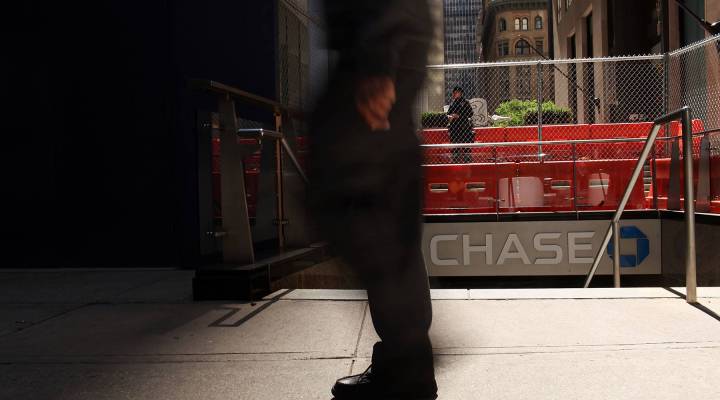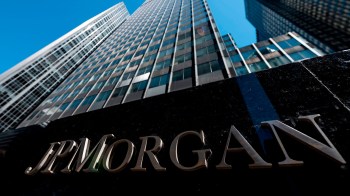
Explaining the risk behind JPMorgan’s loss
Share Now on:
Explaining the risk behind JPMorgan’s loss

Stacey Vanek Smith: JPMorgan Chase CEO Jamie Dimon has revealed the company lost at least $2 billion on some bad bets. The bank was heavily invested in a complicated hedging strategy. The news came as a surprise, because JPMorgan has been known for financial prudence. Our own Paddy Hirsch joins us now to help us hash this out. He’s hosts Marketplace’s online explainer series, The Whiteboard. Good morning, Paddy!
Paddy Hirsch: Good morning, Stacey.
Vanek Smith: So Paddy, to be very honest, I don’t myself own any JPMorgan stock.
Hirsch: Good for you. Smart choice.
Vanek Smith: I imagine a lot of our listeners don’t either. And JPMorgan’s still making a very substantial profit of $4 billion. So how big of a deal is this loss really?
Hirsch: Well to JPMorgan specifically, not that big a deal. I mean, $2 billion is a lot of money, but in the wider scheme of things, it’s probably not going to do them that much damage. But really what we’re talking about here — this is a systemic problem. People are now looking at the banks and saying, what the heck is going on there? And that’s a really, really good question because we thought that the collapse of Lehman Brothers and the takeover of all of these other banks had actually taught us and taught the banks some lessons. But it seems like those lessons haven’t come to roost. Because on the face of it, lending looks like it has tightened up; it’s very difficult for consumers to get a loan now because of standards are so high. But when you look behind the curtain, banks are actually still gambling with money. It looks like Vegas behind there. They’re still using these credit default swaps, these financial weapons of mass destruction and they’re using them willy-nilly as we’ve seen today. And it’s causing the banks real problems. And the other thing is, who knows which other banks are involved in this. It’s probably not JPMorgan only. All the banks are probably doing this and we don’t know how much.
Vanek Smith: Well, and ironically enough, the organization that lost this money in London was actually created to offset risk, right?
Hirsch: Yes. JPMorgan has been making big bets on corporate bonds and one or two sort of hedge against those. So this office was supposed to offset that risk. What’s actually happened is that the gamble that they had to make in order to counteract the other gamble that they made to win corporate bonds has backfired on them. So there’s this really irony of a hedge or an offset of risk has actually turned into the risk itself. This really comes to the center of the problem that regulators are tussling with — what’s gambling and what’s hedging? They can’t quite work this out and until they do it means that it’s going to be very, very difficult to regulate the banks effectively in this way.
Vanek Smith: Paddy Hirsch is a senior producer at Marketplace and host of the online explainer series, The Whiteboard. Paddy, thank you.
Hirsch: Thanks Stacey.
There’s a lot happening in the world. Through it all, Marketplace is here for you.
You rely on Marketplace to break down the world’s events and tell you how it affects you in a fact-based, approachable way. We rely on your financial support to keep making that possible.
Your donation today powers the independent journalism that you rely on. For just $5/month, you can help sustain Marketplace so we can keep reporting on the things that matter to you.


















